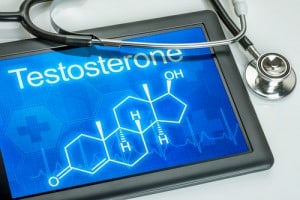New Testosterone Therapy Trials Show Some Good, Some Bad Results

Numerous recent studies linked testosterone therapy and cardiovascular problems, especially in men aged 65 and older. The men involved in these studies were older and in worse health than the men who participated in the most recent study.
The latest study, published on Tuesday, August 11th in the Journal of the American Medical Association (JAMA), showed that only 3% of men aged 40 and over had an increased risk of cardiovascular problems or incidents due to taking testosterone therapy. While that group skews younger in general than previous studies, it is good news for potential testosterone therapy patients, and a solid warning to doctors who prescribe the drug to better screen patients for existing heart problems before prescribing any medication.
The clinical trial examined two measures to cardiovascular risks – coronary artery calcium levels, and narrowing of the carotid artery, which supplies blood to the brain. The study spanned three years, and examined men mostly over age 60 who took testosterone therapy gel, and a control group who used a placebo gel. The testosterone gel was not found to increase risk based on the two measurements of cardiovascular health, the study reported.
The study also found that testosterone gel was found to offer no more benefits than the placebo.
Researchers involved in the study noted that in previous studies, heart attacks and strokes appeared greatest in men who had just begun the hormone replacement therapy. The finding suggested that there could be underlying issues not measured by calcium or narrowing arteries, which could be triggered by a sudden influx of testosterone.
The double-blind study is one of the largest testosterone therapy studies of its kind so far, and the findings could shut down a large portion of the testosterone therapy industry, which makes money off men who fear symptoms of aging, such as decreased sexual performance, lower energy, and weight gain. These symptoms have been tied in advertisements to “Low T.”
Testosterone therapy was originally developed for men with testosterone-producing issues, such as after testicular cancer treatment, or men born with a genetic disorder called hypogonadism. However, as soon as the FDA approved these treatments for specific low testosterone scenarios, pharmaceutical companies began to produce drugs targeted to men with low testosterone for any reason – including normal aging processes.
“But what our study shows is that middle aged and older men whose testosterone levels are in the normal range — or slightly below normal — do not benefit to the same degree, and that they should not indiscriminately use testosterone,” the researchers said.

